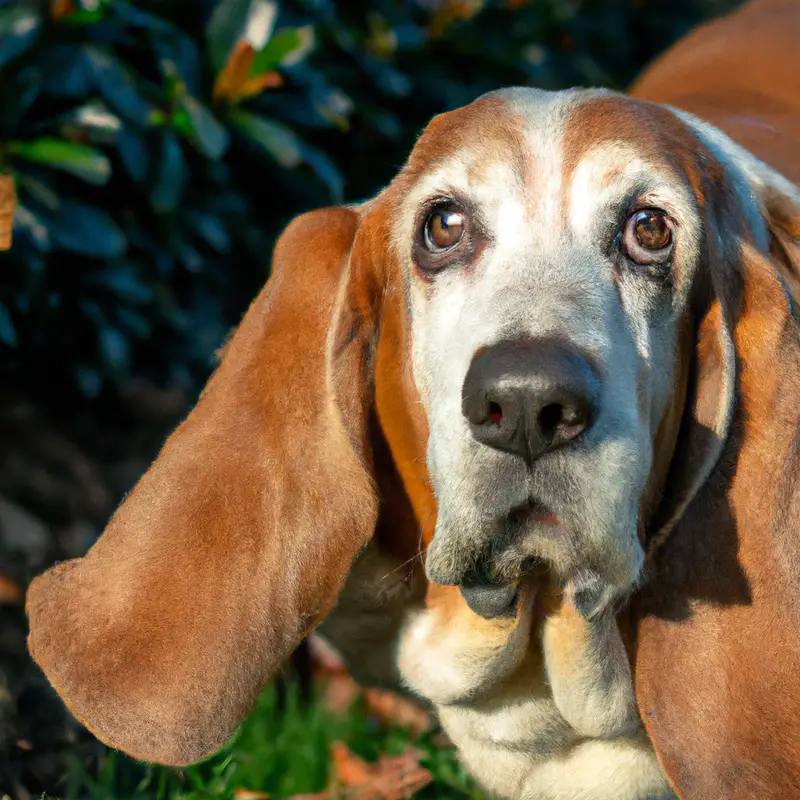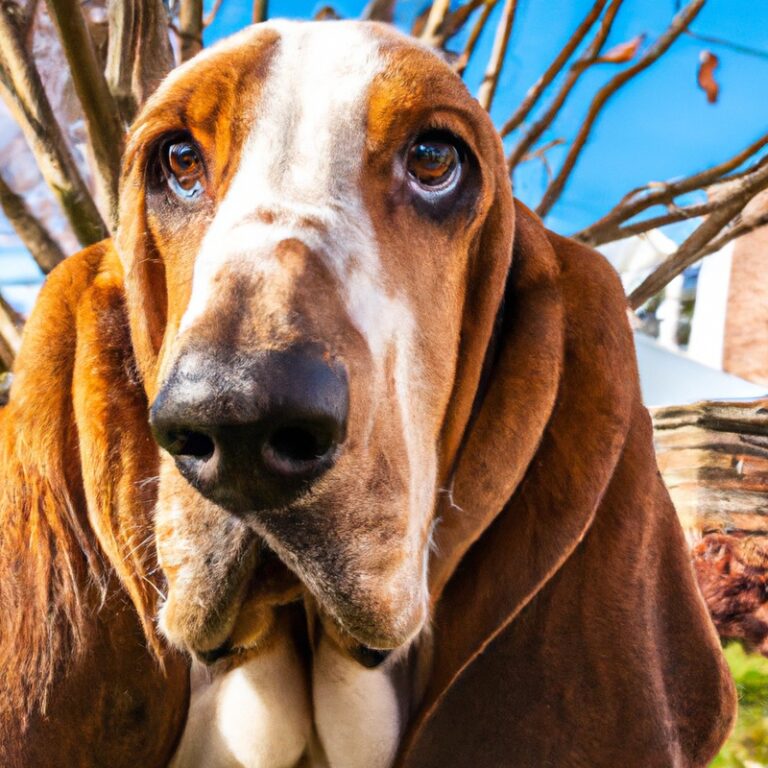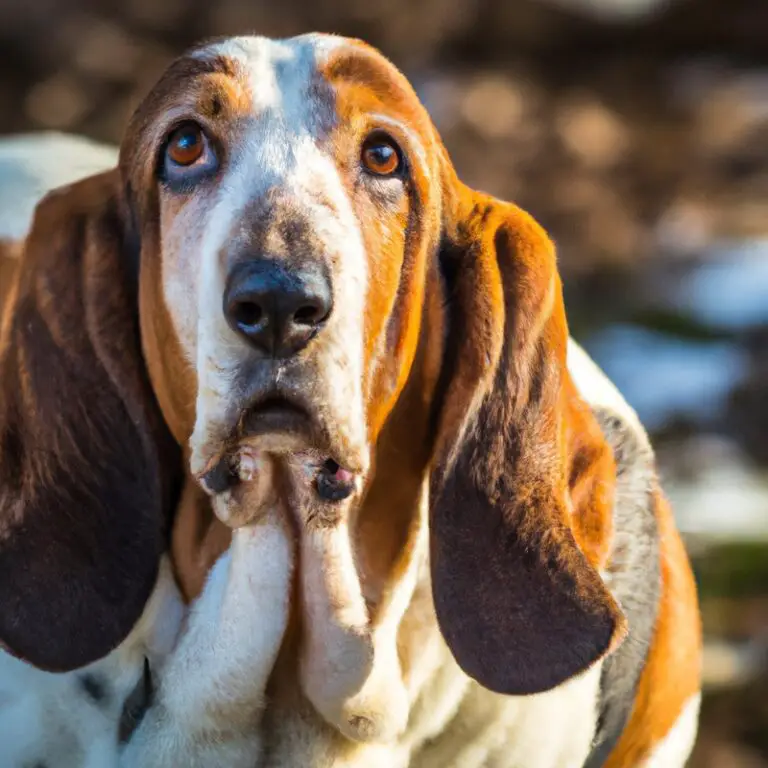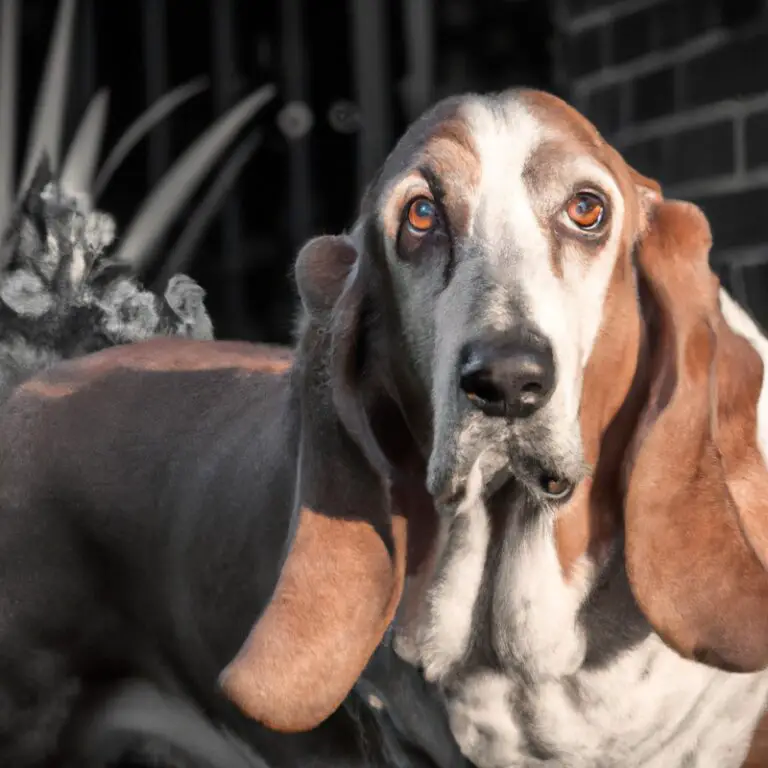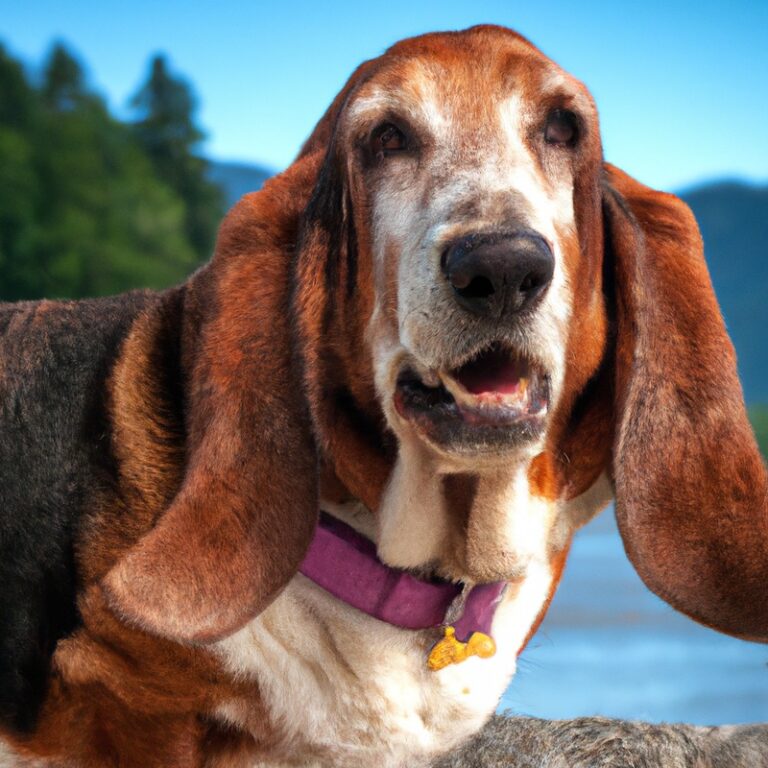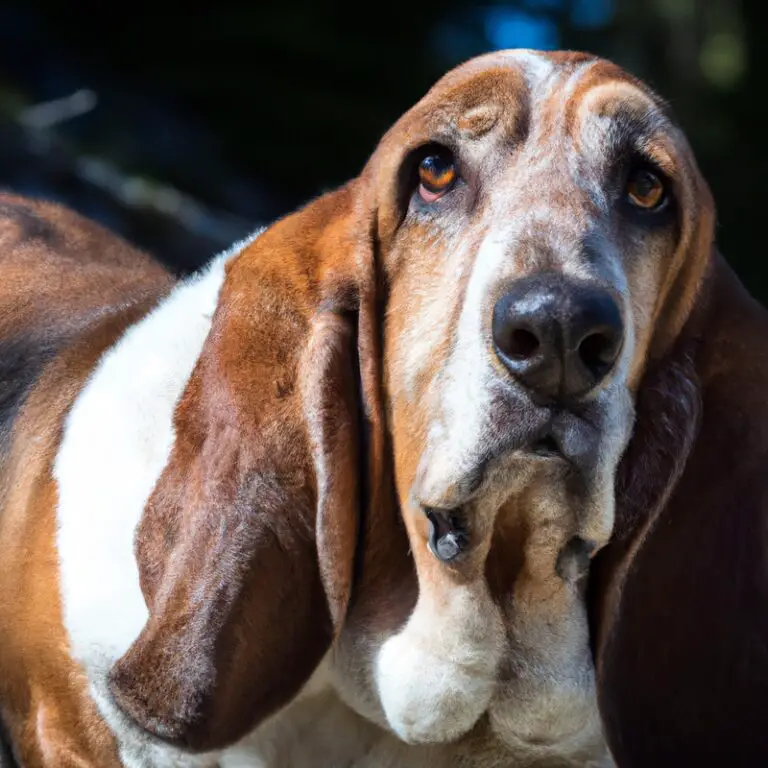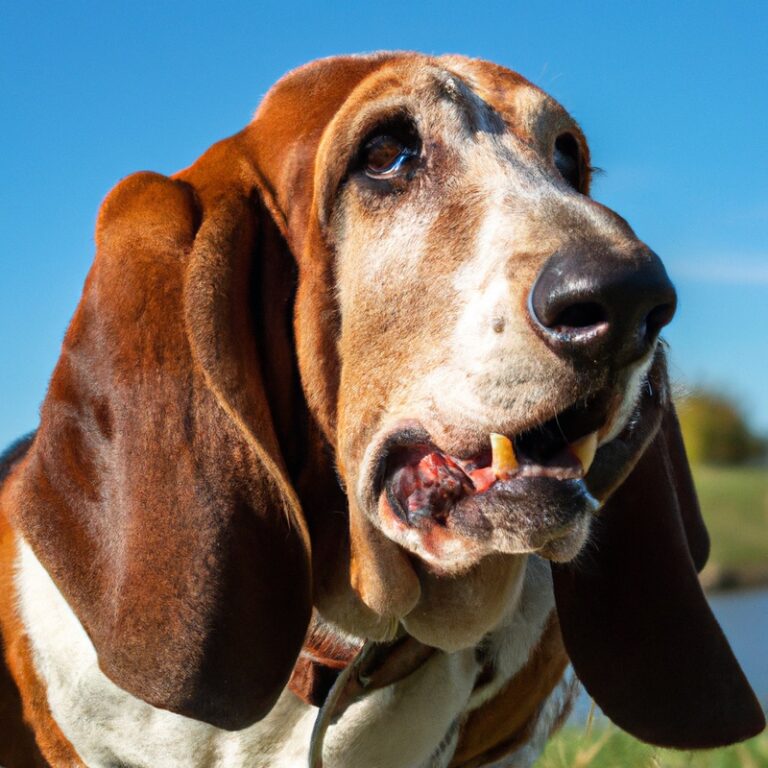Are Basset Hounds Known For Being Good With Primates?
Key Takeaways:
- Basset Hounds are not specifically known for being good with primates.
- Their temperament and behavior can vary, so individual experiences may vary.
- Introducing a Basset Hound to a primate should be done with caution and supervision.
- Training and socialization are key factors in determining compatibility between Basset Hounds and primates.
Are Basset Hounds known for being good with primates?
It’s an intriguing question that sparks curiosity.
As a dog lover and experienced pet owner, I’ve always been fascinated by the unique dynamics between different animals.
In this blog article, I’ll share my expertise on the temperament of Basset Hounds and their potential for positive interactions with primates.
We’ll explore the behavior of Basset Hounds around primates, factors to consider when introducing them, and tips for a successful introduction.
Stay tuned to unlock the secrets of harmonious coexistence between these adorable droopy-eared dogs and their primate counterparts.
The Personality Traits of Basset Hounds
Overview of Basset Hound temperament
Basset Hounds are known for their gentle and friendly temperament.
They are generally good-natured, calm, and patient dogs.
They have a laid-back and easygoing attitude, which makes them great companions for families and individuals alike.
Bassets tend to be affectionate and get along well with children and other pets.
However, they can be a bit stubborn at times, so consistent and patient training is important.
With proper socialization and care, Basset Hounds can make wonderful and loving pets.
Basset Hounds and Primate Interaction
The behavior of Basset Hounds around primates
Basset Hounds can generally have a good temperament around primates, but their behavior may depend on the individual dog. Some Basset Hounds may be curious and friendly towards primates, while others may be more aloof or cautious.
It is important to introduce them slowly and supervise their interactions to ensure everyone’s safety.
Additionally, providing proper socialization and training from an early age can help Basset Hounds become more comfortable and familiar with primates. Remember to always consider the personalities and behaviors of both the Basset Hound and the primate when introducing them.
Factors to consider when introducing a Basset Hound to primates
Introducing a Basset Hound to primates requires careful consideration of several factors.
First, assess the individual personalities and temperaments of both the dog and the primate.
It’s important to choose a Basset Hound with a calm and gentle demeanor.
Additionally, ensure that the primate is comfortable around dogs and shows no signs of fear or aggression.
When introducing them, it’s vital to supervise their interactions closely and gradually increase the duration and proximity.
Creating a safe and controlled environment is crucial to prevent any potential conflicts.
Regular training and socialization for both the dog and the primate are also essential for a successful introduction.
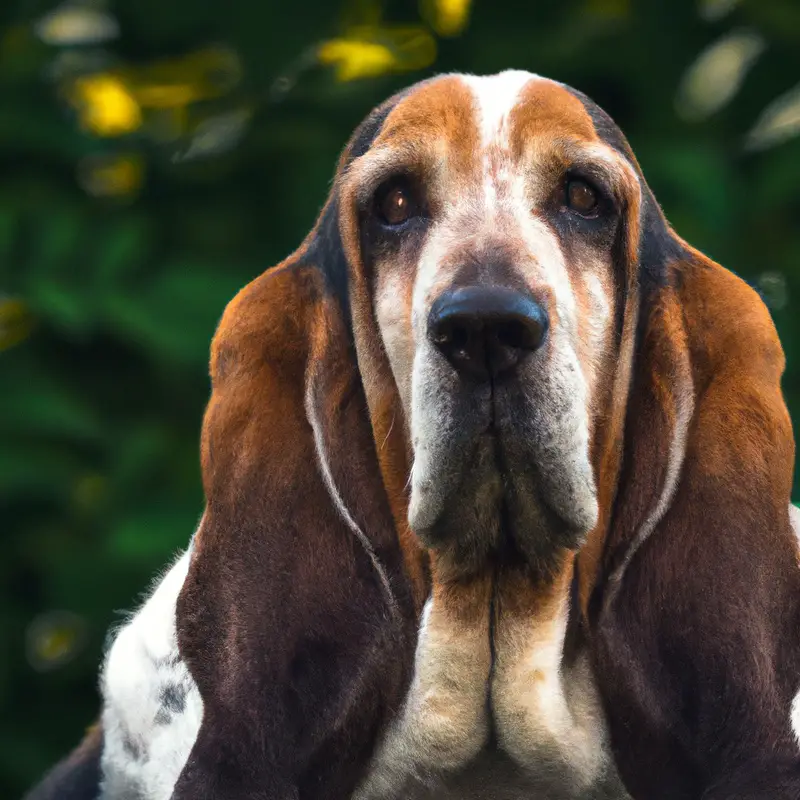
Basset Hounds as Family Pets
Basset Hound’s compatibility with children
Basset Hounds are known for their gentle and affectionate nature, which makes them generally compatible with children.
They are patient and tolerant, making them great companions for kids.
However, it’s important to supervise interactions between young children and dogs to ensure the safety of both parties.
Teaching children how to properly interact with a Basset Hound, such as not pulling on their ears or tail, is crucial.
Early socialization and training are key to promoting a positive and harmonious relationship between a Basset Hound and children.
Basset Hound’s compatibility with other pets
Basset Hounds can generally be compatible with other pets, but it depends on the individual dog and the specific pet. Basset Hounds are generally known to get along well with other dogs, as they are a friendly and social breed.
They can also coexist with cats and other small animals if they are properly introduced and supervised.
However, their strong prey drive may make them incompatible with small pets like rabbits or rodents. It’s important to consider each pet’s temperament and carefully introduce them to ensure a harmonious living environment.
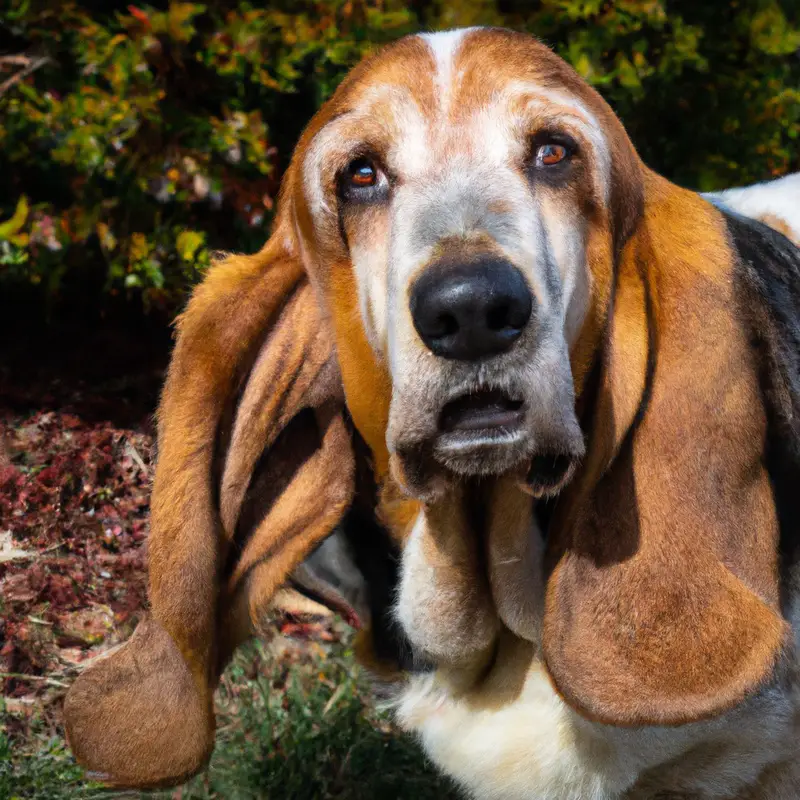
Training Basset Hounds for Primate Compatibility
Importance of early socialization and training
Early socialization and training are vital for basset hounds. It helps them develop good behavior and adaptability.
By exposing them to different people, animals, and environments from a young age, they learn to be comfortable and confident in new situations.
Training teaches them basic commands and reinforces positive behaviors. This early foundation sets them up for successful interactions with primates and other pets in the future.
So, start socializing and training your basset hound early to ensure a happy and harmonious relationship with primates.
Training techniques to make Basset Hounds more compatible with primates
To make Basset Hounds more compatible with primates, it’s important to focus on training techniques that promote positive behavior and understanding.
- Socialization: Introduce Basset Hounds to primates at an early age, gradually and under controlled circumstances. This will help them become familiar and comfortable with each other’s presence.
- Positive reinforcement: Reward desired behaviors such as calmness and respect towards primates with treats, praise, and affection. This will reinforce their understanding of appropriate interactions.
- Obedience training: Teach Basset Hounds basic obedience commands like “sit,” “stay,” and “leave it.” This will help them listen to your instructions and prevent them from getting too curious or overly excited around primates.
- Supervision and monitoring: Always supervise interactions between Basset Hounds and primates to ensure safety for both parties. Keep a watchful eye and intervene if necessary to prevent any negative incidents.
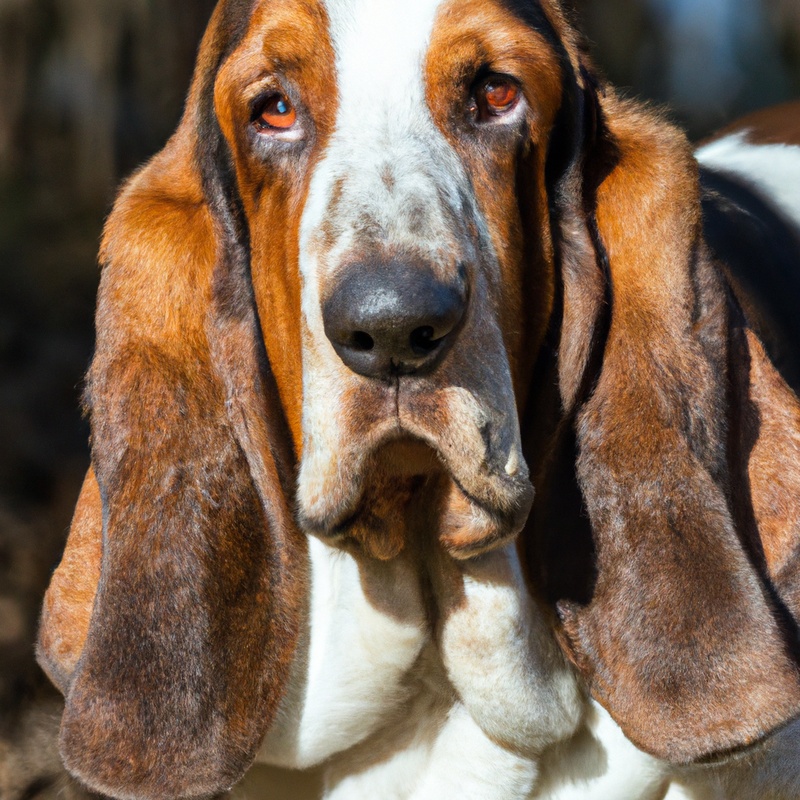
Tips for Introducing a Basset Hound to a Primate
Taking gradual and supervised steps
Taking gradual and supervised steps is essential when introducing a Basset Hound to a primate.
Start by allowing them to become familiar with each other’s scents by exchanging blankets or toys.
Then, gradually introduce them in controlled environments, such as separate rooms with a barrier in between.
Slowly decrease the distance between them over time, always under close supervision.
Pay attention to both animals’ body language and behavior, providing positive reinforcement for calm and appropriate interactions.
Patience and consistency are key in ensuring a successful introduction.
Creating a safe and controlled environment
Creating a safe and controlled environment is essential when introducing a Basset Hound to a primate. Here are some tips to achieve this:
- Set up a designated area: Create a separate space where the primate and the Basset Hound can interact safely under supervision.
- Secure the environment: Make sure the area is escape-proof for both the primate and the dog. Install sturdy barriers or use baby gates to prevent any accidental escapes.
- Remove hazards: Remove any potential dangers or items that could cause harm to either the primate or the Basset Hound. This includes toxic plants, small objects, or cleaning supplies.
- Maintain control: Keep the Basset Hound on a leash during initial introductions to maintain control and prevent any sudden movements or confrontations.
- Provide retreat spaces: Create designated safe spaces or hiding spots for both the primate and the Basset Hound to retreat to in case they feel overwhelmed or anxious.
Potential Challenges in Basset Hound and Primate Interaction
Prey drive and possible aggression
Basset Hounds, like many other dogs, have a natural instinct for prey drive. This means they may be inclined to chase and even display predatory behavior towards smaller animals, including primates.
While not all Basset Hounds will exhibit aggression towards primates, it is important to be cautious when introducing them to each other.
Possible aggression can arise if the Basset Hound sees the primate as potential prey or if there is competition for resources. Proper training, supervision, and gradual introductions can help mitigate these risks and promote a more harmonious relationship.
Behavioral adaptations for Basset Hounds to coexist peacefully with primates
Basset Hounds can coexist peacefully with primates through certain behavioral adaptations.
It’s important to ensure early socialization and positive experiences with primates to prevent fear or aggression.
Gentle, calm, and patient handling is crucial to foster a peaceful relationship.
It’s also essential to provide a controlled and safe environment, avoiding situations that may trigger prey drive in the Basset Hound.
Proper training and supervision are key in promoting harmony between Basset Hounds and primates.
Final Verdict
Basset Hounds can be good with primates, but it largely depends on their individual temperament, socialization, and training.
While they generally have a calm and gentle nature, it’s crucial to consider factors such as the specific primate species, the dog’s prey drive, and any potential aggression.
Early socialization and training can greatly improve their compatibility with primates.
By taking gradual and supervised steps, creating a safe environment, and implementing proper training techniques, Basset Hounds and primates can coexist peacefully.
Overall, with the right approach, Basset Hounds can form positive relationships with primates and make for wonderful family pets.

